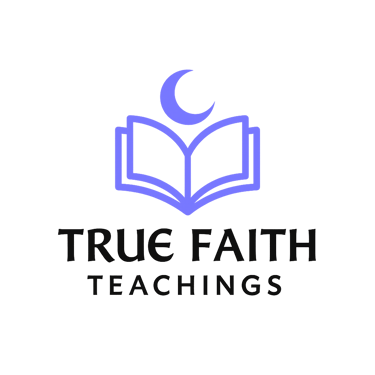Personal and Communal Religious Obligatory Knowledge and The Best Knowledge to Attain
Let us have a deeper look into the categories of knowledge from an aspect, what is the personal and communal religious obligatory knowledge and the best knowledge to attain?
CREEDENCOURAGEMENT TO ATTAIN KNOWLEDGEJURISPRUDENCE (FIQH)
7/14/20252 min read

In our previous blog, we discussed:
That the Messenger of Allah, may Allah raise his rank, said: «ٍطلبُ العلمِ فريضةٌ على كلِ مسلم», which means: «Seeking the knowledge of the Religion is obligatory on every Muslim», so regardless of whether one is male or female, the accountable person must learn.
Is every Muslim supposed to learn everything?
We also mentioned that not every accountable Muslim is ordered to learn all kinds of knowledge. Had every kind of knowledge been obligatory on every male and every female, it would have been a hardship beyond one’s ability, and Allah, the Most Merciful, does not order anyone with what one cannot bear.
The intended meaning in the saying of the Prophet is as follows: every accountable Muslim, male or female, is obligated to learn an amount of knowledge that one cannot do without. This knowledge is called Personal Religious Obligatory Knowledge.
Is there another type of religious obligatory knowledge?
Yes, there is the knowledge called the Communal Religious Obligatory Knowledge.
What is the difference between the two?
The Personal Religious Obligatory Knowledge is the knowledge every accountable Muslim must acquire, and it is not an excuse for the person to avoid learning just because there are people around him who know these matters. Examples: The Essentials of Belief (the thirteen attributes of Allah, the attributes of the Prophets and Messengers, etc.), basic knowledge about purification and prayer, fasting, obligations of the heart, sins of the heart and the body parts, etc.
The Communal Religious Obligatory Knowledge is the knowledge that, if some Muslims acquire and master, it is no longer obligatory on the others to acquire. An example of this category is for one to learn the proofs of the tenets of the Belief (the rules of the Islamic Belief) from the Qur’an, Hadith, and intellect to refute the claims of the enemies of Islam, and for one to learn the details of prayer, fasting, pilgrimage, zakah, inheritance, etc., so that he or she would be able to give judgments to people seeking answers.
Note: In Islam, these are not the only obligatory types of knowledge; these are the religious obligatory types. Muslims need engineers, doctors, blacksmiths, carpenters, farmers, and the like, so it is an obligation as a communal obligation for Muslims to acquire the knowledge of engineering, medicine, metalworking, woodworking, agriculture, and the like.
Why is Tawhid the best knowledge?
The knowledge of Tawhid, the best knowledge to attain, is so because it has to do with knowing about Allah and His Messengers. This entails knowing what befits Allah and what is impossible to be among His attributes, and what befits the Prophets and Messengers and what is impossible to be among their attributes.
The knowledge of Tawhid is of two categories:
The obligatory knowledge on every accountable person, which includes the belief in Allah, His Prophets and Messengers, His Angels, His Books (the only currently authentic book is the Qur’an), destiny, the Day of Judgement, and the like.
The obligatory knowledge on some Muslims to master, learning the proofs of the tenets of the Belief (the rules of the Islamic Belief) from the Qur’an, Hadith, and intellect to refute the claims of the enemies of Islam.
We are not done discussing the knowledge of Tawhid yet. We will be continuing in further blogs, and remember what the Prophet ﷺ said: “من يُرد اللهُ بهِ خيرا يفقههُ في الدين”, which means: “Whomever Allah willed goodness for, He makes him knowledgeable in the Religion.”
Stay with us in this journey as we explore deeper into Tawhid in our next blog!
